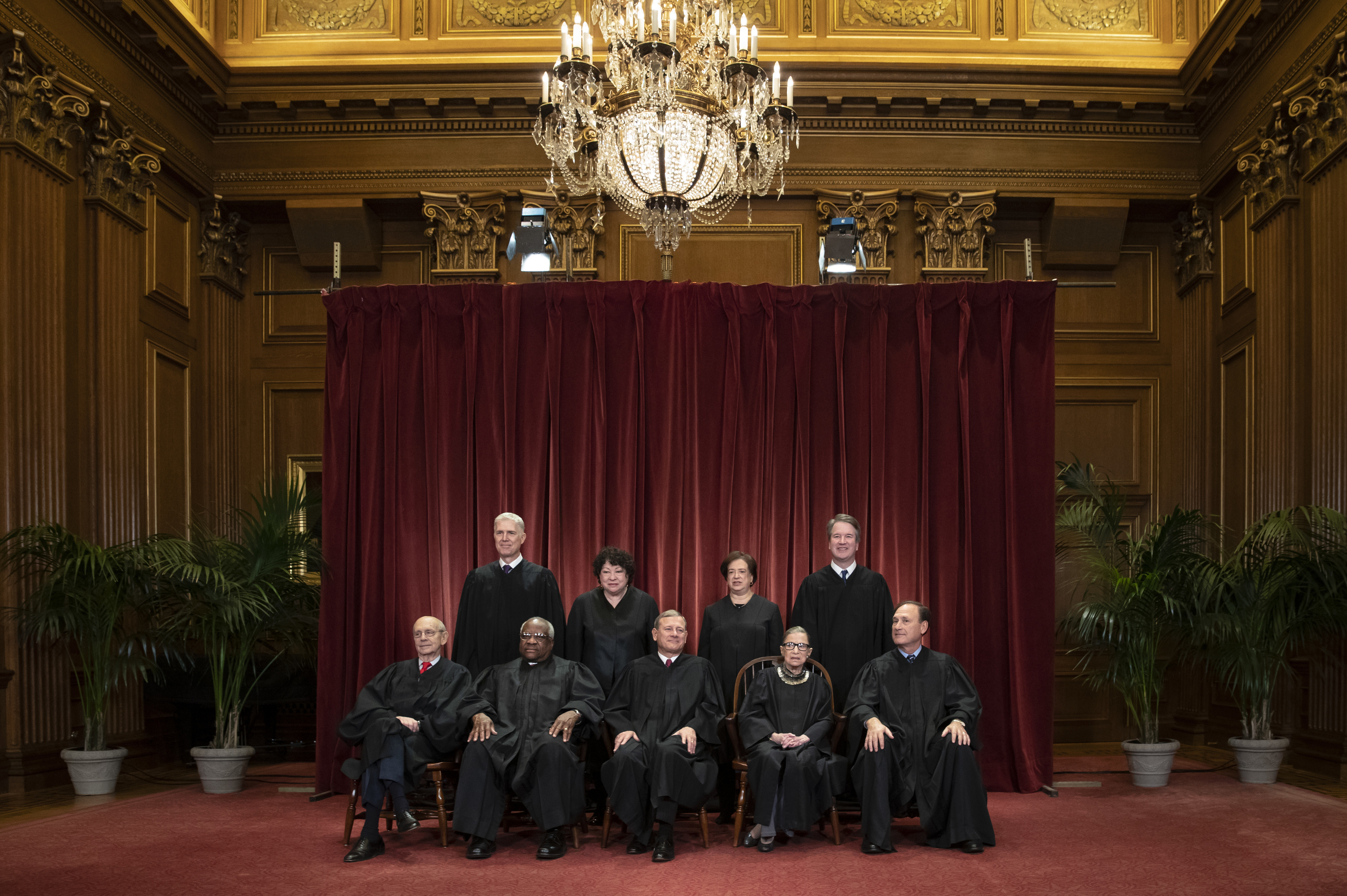
Changed Supreme Court weighing Louisiana abortion clinic law
WASHINGTON (AP) — The outcome of a fight over a Louisiana law regulating abortion providers could signal whether a fortified conservative majority on the Supreme Court is willing to cut back on abortion rights.
The high court is expected to decide in the next few days whether the state can begin enforcing a law requiring doctors who work at abortion clinics to have admitting privileges at a nearby hospital. It was passed in 2014, but has never taken effect.
The Supreme Court struck down a similar law in Texas three years ago. But the court’s lineup has changed since then. Two appointees of President Donald Trump have joined the bench and Justice Anthony Kennedy has retired. Kennedy voted to strike down the Texas law.
The law was to have taken effect on Monday, but Justice Samuel Alito issued a brief order last week that pushed back the effective date at least to Thursday because, Alito said, the justices needed more time to consider an emergency appeal from Louisiana abortion providers. Alito handles those appeals from Louisiana.
The issue before the court is whether the law may be enforced even as appeals over its validity continue, so the impending vote may not be the justices’ last word on the matter.
But it is expected to be a window on the court’s views of abortion rights.
A vote to allow the law to take effect “will be a really good sign that the modified Court will not police states or lower courts’ compliance with” the Texas decision or an earlier ruling in 1992 that reaffirmed a woman’s right to an abortion that the court first announced in the Roe v. Wade decision in 1973, University of California, Irvine law professor Leah Litman wrote on the progressive Take Care blog.
Abortion opponents have been awaiting that signal since Trump’s election, particularly after he promised during the 2016 campaign to appoint “pro-life justices.” Justice Neil Gorsuch, Trump’s first appointee, took the seat of the late Justice Antonin Scalia, who opposed abortion rights. The president’s second pick, Justice Brett Kavanaugh, replaced Kennedy.
The current situation bears some resemblance to the court’s shift on a particular abortion method that its opponents call partial-birth abortion.
In 2000, the Supreme Court struck down Nebraska’s ban on the procedure by a 5-4 vote. Seven years later, the court upheld a federal partial-birth abortion ban by an identical vote. The makeup of the court had changed, with John Roberts replacing William Rehnquist as chief justice and, crucially, Alito taking Sandra Day O’Connor’s place on the bench. O’Connor voted to strike down the state law; Alito voted to uphold the federal ban.
In the majority opinion that upheld the federal law, Kennedy wrote that the law did not impose an “undue burden” on a woman’s right to an abortion, the standard laid out in the 1992 abortion-rights ruling, and that it was sufficiently different from the Nebraska law that had been struck down in 2000, even though neither law contained a provision allowing the method to be used if a doctor decided it was necessary to preserve the mother’s health.
Rachel Morrison, litigation counsel for the anti-abortion group Americans United for Life, said the court also could find differences between Texas and Louisiana in the situations confronting women seeking abortions in the two states. The court’s ruling invalidating the Texas law “does not mean that all admitting privileges laws are per se unconstitutional or that there is sufficient evidence that Louisiana’s law will lead to the closure of a large number of abortion clinics in Louisiana,” Morrison wrote on her group’s website.
Differences in the two state laws were at the heart of last year’s 2-1 ruling by the federal appeals court in New Orleans that upheld the Louisiana measure. The appeals court rejected a trial judge’s conclusions at least one and possibly two of the state’s three abortion clinics would have to close and, at most, two doctors would remain authorized to perform abortions in Louisiana.
In January, the full appeals court voted 9-6 not to get involved in the case, setting up the Supreme Court appeal.
The appellate ruling “brazenly ignored recent U.S. Supreme Court precedent squarely on point,” said?Nancy Northup, head of the Center for Reproductive Rights. The group represents the clinics in court fight.
More alarming to abortion rights supporters is that high court action allowing the law to take effect could provide a road map to lower courts that are considering, or may soon weigh, other state efforts to restrict abortion.
Judges will be able to whittle away at abortion rights “by distinguishing away any decision favorable to reproductive justice, and refusing to meaningfully scrutinize any law that affects abortion access or abortion providers,” Litman wrote.
The case is June Medical Services v. Gee.
The Western Journal has not reviewed this Associated Press story prior to publication. Therefore, it may contain editorial bias or may in some other way not meet our normal editorial standards. It is provided to our readers as a service from The Western Journal.
Truth and Accuracy
We are committed to truth and accuracy in all of our journalism. Read our editorial standards.
Advertise with The Western Journal and reach millions of highly engaged readers, while supporting our work. Advertise Today.











